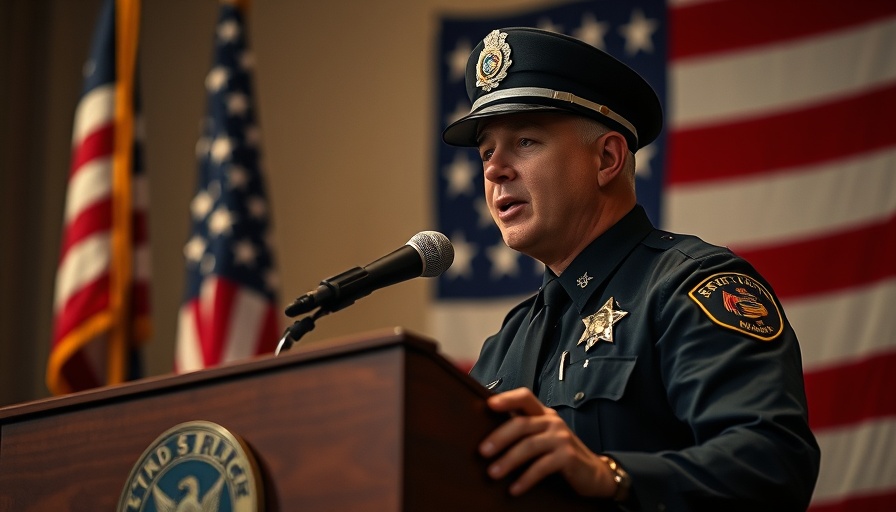
The Bold Message of Mental Health Awareness
The Dearborn Heights Police Department is taking a powerful stand for mental health awareness this September, coinciding with National Suicide Prevention Month. Officers will don specially designed shirts that not only identify them as law enforcement personnel but also broadcast a poignant message: one of understanding, empathy, and care for mental health issues. These shirts carry not only 'Mission Suicide Awareness' but also a tribute to a sergeant lost to suicide in 2016, complete with his year of birth and date of passing, illustrating the personal stakes involved.
In 'Dearborn Heights police wear shirts for Suicide Awareness Month with personal tribute', the discussion dives into the importance of mental health awareness as a key issue, prompting us to analyze its broader implications.
Empathy in Action: Breaking the Stigma
The initiative spearheaded by the Dearborn Heights Police isn’t just about wearing a shirt—it represents a shift in how law enforcement engages with mental health crises. When police officers express support for mental health awareness, they dismantle the stereotype that crime responders are emotionless. This step is vital in encouraging community members who may be suffering silently to seek help.
Understanding the Impact of Trauma
Being in law enforcement exposes officers to daily trauma, from responding to critical incidents to engaging in high-stress confrontations. It’s essential for them to recognize their own mental health needs and support each other. Officers involved in this initiative report that they often listen to those in crisis with the primary goal of helping them feel understood rather than judged, a crucial approach when managing sensitive situations. According to the officers, it’s apparent that they can often relate to the emotional burdens the community faces.
Resources for Mental Health Support
The Dearborn Heights Police department doesn’t just talk the talk; they have actionable services available to their team. Officers have direct access to counseling and debriefing sessions to help them manage the stresses of their roles. Understanding that mental health issues affect not just the community but also the police force is a critical step toward building a resilient workforce that prioritizes emotional well-being.
Community Participation and Engagement
Community events play a significant role in raising awareness about mental health. When police wear shirts that symbolize support, it encourages citizens to engage in discussions about their mental health challenges. The police are not just enforcers; they are potential allies in the fight against the stigma surrounding mental health issues. Public events, discussions, and outreach programs are vital for normalizing conversations about mental health in communities.
Future Insights on Mental Health Initiatives
As more police departments engage with mental health initiatives, we may see a new standard across the nation. Through awareness campaigns, readily available resources, and open discussions, the landscape of community policing is set to evolve, promoting healthier relationships between officers and the citizens they serve. The future could hold new training protocols emphasizing emotional intelligence and mental health literacy, fostering a more supportive environment in law enforcement.
What You Can Do
If you are or know someone who is struggling with mental health issues, the message is clear: You are not alone. The National Suicide Prevention Lifeline at 988 provides critical resources and support for those in crisis. Whether it’s through community outreach or individual conversations, acknowledging mental health is a collective effort that can save lives.
 Add Row
Add Row  Add
Add 



Write A Comment